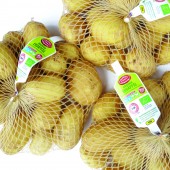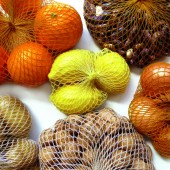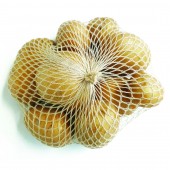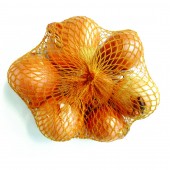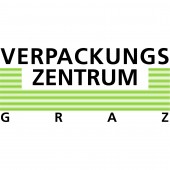cellulose net tube Compostable Packaging by Verpackungszentrum Graz |
Home > Winners > #33244 |
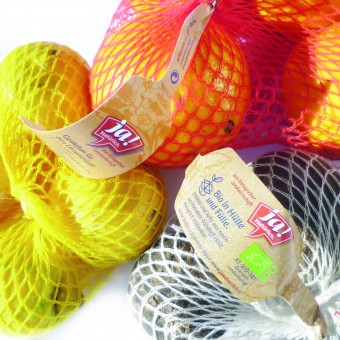 |
|
||||
| DESIGN DETAILS | |||||
| DESIGN NAME: cellulose net tube PRIMARY FUNCTION: Compostable Packaging INSPIRATION: The global problem of waste packaging demands radical measures. A garbage slick the size of Germany called the Great Pacific Garbage Patch is drifting in the Pacific. Packaging manufacturers have concentrated on synthetic packaging over the last few decades, with plastic being used for almost 100% of net packaging. However, consumers want to buy organic produce in organic packaging and increasingly demand the ecological carbon footprint of natural packaging. UNIQUE PROPERTIES / PROJECT DESCRIPTION: Using packaging that is biodegradable not only limits the drain on fossil resources but also allows biodegradable substances to enter the supply chain. The Verpackungszentrum Graz has successfully made a step in this direction by developing tubular nets using compostable Modal cellulose fibres from thinning of home forests. The nets first appeared on supermarket shelves at Rewe Austria in December 2012. 10 tonnes of plastic can be saved by Rewe alone, simply by changing the packaging for organic potatoes, onions and citrus fruit. OPERATION / FLOW / INTERACTION: The breathable natural netting offers consumers the added benefit of keeping the produce fresh for an extra 2 to 3 days, and also prevents potatoes and onions from sprouting. The product feels soft and looks natural. The modal fibres are coloured during a special dying process, which only requires a small amount of dye. By composting the net, it becomes a source of nourishment for further food produce. Produce that is no longer fit for sale can be disposed of together with ist packaging. PROJECT DURATION AND LOCATION: Development: 14 months. Market appearance: Rewe Austria December 2012, Hofer / Aldi Austria June 2013. Awards selection: Designated Exemplary Packaging Solution at the Austrian State Prize for Packaging 2012, Energy Globe Styria Award 2013, fibre plus 2013 for cellulose product innovation, Fast Forward Award 2013 (Styrian Award for Business and Innovation), International Materialica Design & Technology Award Best of CO2 2013, Nomination at the Fruit Logistica Innovation Award 2014, ÖGUT Environmental Award 2014 |
PRODUCTION / REALIZATION TECHNOLOGY: The biodegradable net tubes are made using Modal cellulose fibres. Beechwood is used to produce the raw materials, which is a result of the thinning of forests in central Europe, using PEFC or FSC-certified forestry. Lenzing AG, world market leader for environmentally-frie SPECIFICATIONS / TECHNICAL PROPERTIES: Dimensions: Sleeves for automatic clipping machines, 200 running meters, for pipes 200, 210, 225 and 250 mm diameter. Colors: White, potato yellow, red orange for yellow onions, purple red for red onions and beetroots, lemon yellow, red for oranges and brown TAGS: biodegradable net packaging, compostable net packaging, cellulose net packaging, Modal net packaging RESEARCH ABSTRACT: The Colors of Nature research project lead by the Institute of Textile Chemistry and Physics of the University of Innsbruck, includes research into dyes derived from plants or waste substances e.g. bark, skins or marc, and the definition of principles for their application in industry. Samples of packaging tubes were coloured on the laboratory scale using the following colours: yellow from goldenrod, beige from nutshells and orange from onion skins. The process is currently being scaled up. CHALLENGE: The natural life cycle raises many issues. In an ideal scenario, local refuse materials are used as raw materials, creating a value-added intermediary purpose, before they are composted or used for energy. The production of raw materials should not compete with the food production, thus avoiding the use of water and chemicals for agriculture. The fibre production should be as environmentally-frie ADDED DATE: 2014-02-26 07:55:02 TEAM MEMBERS (1) : Lenzing AG Austria, Borckenstein GmbH Austria, Netzfabrikation Henning Germany, Erzeugerorganisation Marchfeldgemüse Austria, Rewe Austria, Hofer (Aldi Austria), University of Innsbruck Austria / Institute for Textile Chemistry and Physics IMAGE CREDITS: all images Verpackungszentrum Graz |
||||
| Visit the following page to learn more: http://www.vpz.at | |||||
| AWARD DETAILS | |
 |
Cellulose Net Tube Compostable Packaging by Verpackungszentrum Graz is Winner in Sustainable Products, Projects and Green Design Category, 2013 - 2014.· Read the interview with designer Verpackungszentrum Graz for design cellulose net tube here.· Press Members: Login or Register to request an exclusive interview with Verpackungszentrum Graz . · Click here to register inorder to view the profile and other works by Verpackungszentrum Graz . |
| SOCIAL |
| + Add to Likes / Favorites | Send to My Email | Comment | Testimonials | View Press-Release | Press Kit | Translations |
Did you like Verpackungszentrum Graz's Sustainable Product Design?
You will most likely enjoy other award winning sustainable product design as well.
Click here to view more Award Winning Sustainable Product Design.


